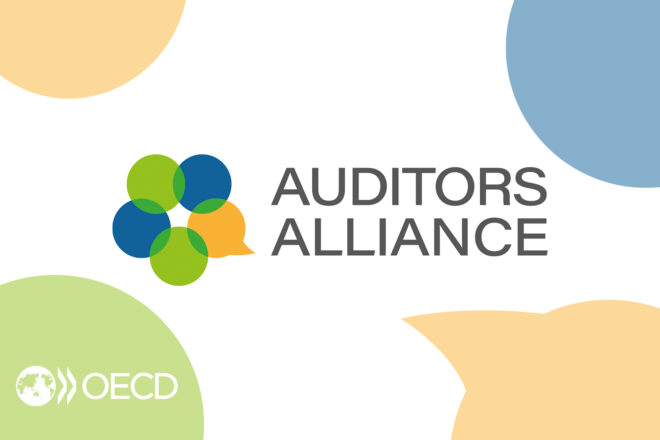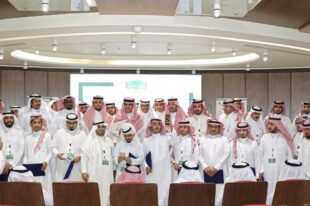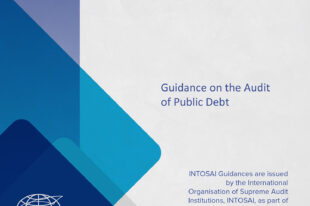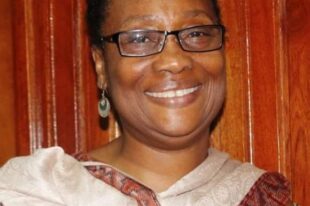“Auditors build trust, help shore up government resilience and are indispensable in the fabric of good governance.”
Jeffrey Schlagenhauf, Deputy Secretary-General for the Organisation for Economic Co-operation and Development (OECD), opened the OECD Auditors Alliance virtual meeting on September 23, 2020, welcoming worldwide attendees in contributing to a timely and relevant topic, “Audit Innovation in Times of Crisis.”
Schlagenhauf stressed the critical role of auditors in providing evidence and insight to answer key questions, particularly now, as governments are steering blindfolded into unchartered territory and taking unprecedented measures to overcome the crisis.
The COVID-19 Pandemic has globally affected the lives of people, which, in turn, affects the work of auditors, who are discovering innovative ways to operate and exploring new approaches to provide effective national pandemic response oversight.
To facilitate exploration and collaboration, a new Auditors Alliance online platform was launched during the meeting. The website, designed to connect auditors anytime, anywhere to learn from one another, establish good practices, and engage in real-time auditing issues, also includes galleries featuring opinions and cases on such topics as crisis resilience, digital government, innovation, integrity, and strategic foresight—resources to explore what other auditors are doing and learn from those experiences.
The event then turned to Chris Bolton, Wales Audit Office Head of Good Practice Exchange, who highlighted the office’s goal to “assure, explain, inspire” and shared insight into the “Audit Wales COVID-19 Real-Time Learning Project.”
“In a crisis, you should always deploy an innovation team alongside business recovery teams to capture the novel practice.”—Dave Snowden, Founder of Cognitive Edge.
This quote, Bolton remarked, was the inspiration behind the project, which aimed to focus on learning.
He explained that, during a crisis, people may do things they have never done before, so “business as usual” rules do not apply.
For the Wales Audit Office, this meant shifting audit practices to gather learning in real time, considering the effects of this shift on stakeholders, socializing the idea and developing an agile approach to project management.
While the mechanics may have been straightforward, an unpredictable element remained—people. To address this challenge, the collection, analytical and sharing processes were transformed.
“What may not look significant to you may be just the piece of information needed for a breakthrough.”
Bolton underscored the importance of collecting words (not just numbers), overcoming a culture of verification, encouraging people to share information (no matter how insignificant), and learning that sometimes “good enough is good enough.”
The office compiled collected data and created new, bite-size ways to share the findings, including internally-focused weekly digests and externally-focused tweets and blogs. Bolton characterized auditors as “diamonds of information” and believes audit organizations are in a unique position to share information.
The learning project’s impact includes an improved reputation and positive feedback from internal and external stakeholders. Bolton offered next steps, which will focus on reflection and continued improvement.
“The job is not finished. We still have more to do,” he concluded.
Breakout sessions, which allowed the participants to interact in smaller groups to discuss perceptions on how the COVID-19 Pandemic has affected audit practices, were followed by a panel discussion featuring Tsakani Maluleke, Deputy Auditor General of South Africa, who shared the Auditor General of South Africa’s experience on quick audits of key controls; Howard Arp, Director of Investigations, Forensic Audits and Investigative Service at the U.S. Government Accountability Office (GAO), who discussed GAO’s oversight of COVID-19 related relief; and Antonio Leonel, Federal Secretary for Internal Control at the Office of the Comptroller General, Brazil, who explained data driven audit work in procuring emergency medical supplies.
Common themes that emerged from the dialogue included implementing innovative, real-time audit approaches while not sacrificing quality and objectivity as well as increasing stakeholder communication and trust to help achieve greater audit impact.
In the event’s closing remarks, János Bertók, Acting Director of the OECD Public Governance Directorate, recognized the Auditor Alliance’s growth since its launch in 2018 and ability to provide a continuous learning experience.
“Sharing insight and foresight can help governments and societies navigate this unchartered territory. As we have seen today, auditors are the best guides.”
The OECD Auditors Alliance is a unique forum for public sector internal and external auditors to share insights and expertise on audit practices and aims to:
- Bring together public sector auditors;
- Create a space to share better practices and overcome challenges in public sector auditing; and
- Facilitate institutional partnerships in the spirit of mutual learning and targeted cooperation, matching the needs and skills of different auditors and audit entities.
The September 23 meeting on “Audit Innovation in Times of Crisis” illustrates the Alliance’s global reach—876 delegates from 126 countries registered for the event. During the meeting, a new online platform was launched (oecd-auditors-alliance.org) to enhance exchange and facilitate learning among auditors worldwide. View the event recording here.






